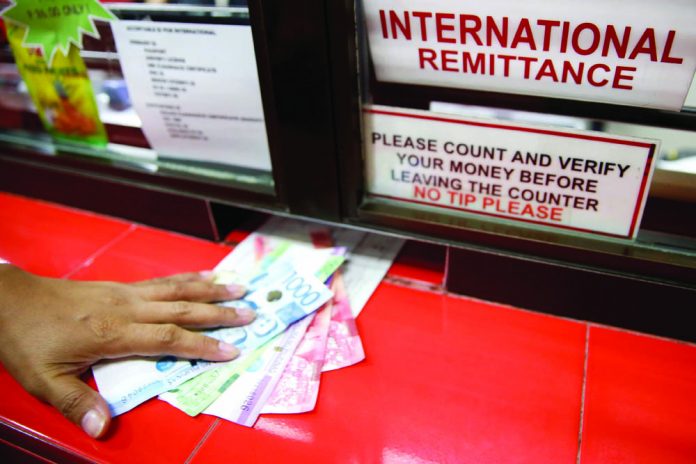
THE prospects of receiving remittances from overseas Filipinos draw emotional stress in two out of every five recipients in the Philippines, a study conducted by a United States-based payments provider UniTeller showed.
Forty-one percent of the recipients reported that expectations of receiving money transfers place their families under emotional stress, while 54 percent say it impacts their relationship with the sender.
These are the findings of a study – “Both Sides of the Coin: The Receiver’s Story” – conducted by UniTeller.
Stress could come from the uncertainties regarding remittance inflows, or expectations that the funds might not come in due to some unforeseen circumstances, UniTeller Philippines country president Noel Cristal said in a press conference.
“Maybe it’s a regular thing but in the end, it’s not a sure thing if something happens on the send side or something happens on the receive side. There are some calamities…we cannot get the funds, and also we cannot give the funds from the sending side,” he told reporters in Taguig City.
The same study showed that 19 percent of Filipinos who receive remittances indicate that they “regularly” run out of money, with 72 percent saying they will most likely reach out to the sender for more funds, while 53 percent said they will have to forgo day-to-day family needs when short of funds.
“They’re dependent on these remittances from their loved ones abroad. There’s really poor financial planning and a rising over-dependence on remittances abroad. If there’s poor financial planning, there’s over-dependence on the remittances received from their loved ones,” Cristal noted.
The average monthly value of remittances sent by low-income overseas Filipino migrants is $446, which is equivalent to P22,585.44 based on the latest exchange rate of P50.64:$1. This is nearly triple the average monthly household income of $175, or P8,862, among the remittance recipients.
Fifty percent of the money is allotted to basic day-to-day needs and bills and loan payments which both accounted for 25 percent. Education and savings are allotted the equivalent of 13 percent each the total amount, while 11 percent goes to medical expense and seven percent to mobile reloads and non-essential luxury items.
“With global mobility increasing, remittances are playing a more important role in the livelihoods of low-income families and communities,” said UniTeller top official Alberto Guerra.
“As the reliance on remittances grows, a key challenge is ensuring this income translates to building sustainable growth,” he said.
The study was conducted in September, based on a survey of 1,911 face-to-face interviews with adults from low-income households – 503 in India, 501 in Indonesia, 606 in the Philippines, and 301 in Vietnam. (GMA News)



